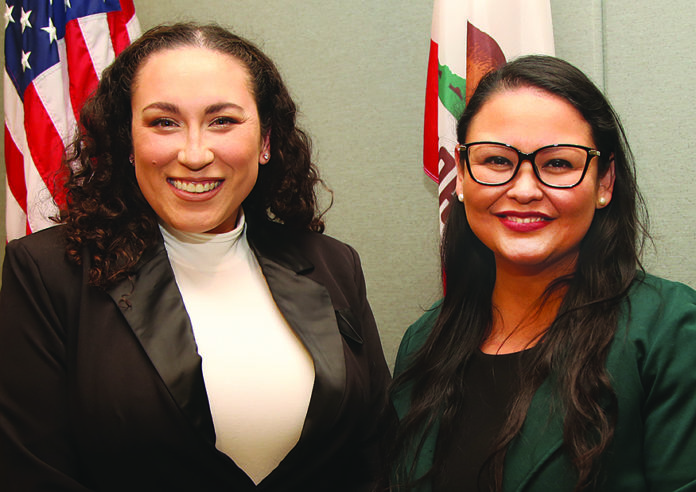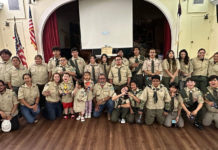
When Vanessa Quiroz-Carter and Maria Orozco were sworn in late last year as Watsonville’s Mayor and Vice-Mayor, it was only the second time in the city’s history two women have held the roles.
The first was in 2019, when Rebecca Garcia and Trina Coffman-Gomez sat in the seats.
In fact, women being placed into high office is a relatively recent development in Watsonville, with Ann Soldo becoming the city’s first female mayor in 1983, more than 100 years after Watsonville was incorporated.
For International Women’s Day today, The Pajaronian sat down with Quiroz-Carter and Orozco to talk about their roles, and the importance of having women leaders.
Launched in 1975, International Women’s Day is a time to celebrate the political, social and economic contributions of women. The day also serves as a reminder to support equality.
In decades past it would have been unthinkable for women to hold leadership roles, and vestiges of that outdated thinking still remain in some places.
Quiroz-Carter says that both her youth, and the fact that she is Latina surprises some people. But others, she says, draw inspiration from it.
“People tell me that it gives them hope for the future,” she says. “That they can see their daughters or their sisters or their wives, people that they know being in positions of power.”
Orozco agrees.
“When we look at historically the City of Watsonville, it’s rare when you’ve seen two women of color representing the city,” she says. “And when you see it it’s shocking, but it’s also very powerful.”
Orozco says she always keeps in mind that she is serving as a role model.
“So there is a burden we carry,” she says. “That responsibility in making sure we are representing our community in the best possible way.”
Quiroz-Carter says she still sees traces of a patriarchal system.
“I’ve definitely been in meetings where I’m overlooked,” she says. “They will bypass me to shake the hand of the man.”
This thinking changes, she says, with more women getting elected and appointed.
“That’s why it’s important for people to see more women leaders,” she says.
Both Quiroz-Carter and Orozco agree that women generally have different leadership styles than their male counterparts.
“We’re logical, we have strong leadership skills,” Orozco says. “But we also have that humanity in the way we lead. And I think that we’re willing to even change our minds sometimes when we sit down in conversation with people who may not agree with us.”
Quiroz-Carter adds, “And women are collaborative.”
But these differences can be both a detriment and a benefit, Quiroz-Carter says.
“Sometimes those leadership styles aren’t—because they’re not within this masculine frame—it’s not taken as seriously,” she says. “So I feel like as a woman you have to sometimes work so much harder to fit into someone’s idea of what a leader is, even if you don’t fit that mold.”
At the same time, both say that they have had many male mentors. Orozco says she has learned to weather the slings and arrows that come with her position.
“One thing I appreciate from the male perspective is that ability to teach you to have a tough skin,” she says. “And to look past being ignored at times and just keep paving the way.”
Quiroz-Carter says that her success comes despite being raised in a patriarchal family where the men come first and women are expected to get married and have children.
“I always felt I was in the shadows of my male cousins, because they were the ones that were expected to be the leaders,” she says.
Orozco came from a similar background. She describes herself as the, “trouble-maker of the family.”
“I had to push the agenda, and I think that’s where my leadership comes in. I’m not going to take no for an answer just because you say no,” she says. “I’m going to open doors for myself. And I want you to listen to me. I want you to see me, because I have something to say. And I think that’s beautiful.”
When asked for her advice for young girls who are learning to make their way in the world, Quiroz-Carter said they should, “open your own doors. Make your own opportunity.”
“That’s really what you have to do,” she says. “And trust what you’re good at and continue doing it.”
Also, she adds, “Failure is part of success.”
“You have to fail in order to succeed,” she says. “You have to try things. You have to go where other people have not gone before, even if it’s scary.
Orozco adds, “get comfortable with being uncomfortable, because that’s when you know you’re growing.”
“In any decision you have to make, and any opportunity you take, make sure you hold your integrity tight, and keep your values intact,” she says. I don’t think you should ever have the need to negotiate your values.”











